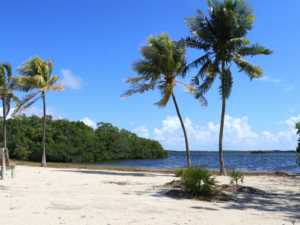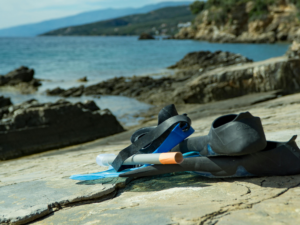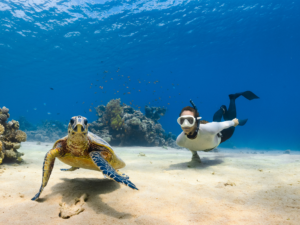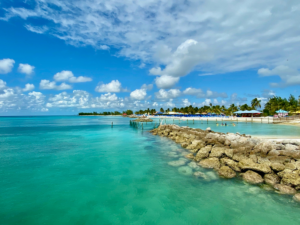Ultimate Guide to Dealing With Seasickness: Enjoy Snorkeling Without the Nausea
Dealing with seasickness while snorkeling can be a significant challenge for many adventurers eager to explore the mesmerizing underwater world. While snorkeling is a thrilling experience, seasickness can turn an exciting outing into a discomforting ordeal. In this article, we’ll explore effective strategies for dealing with seasickness while snorkeling so that you can enjoy your aquatic escapades to the fullest.
Understanding Seasickness
Seasickness occurs when your inner ear, eyes, and deeper body parts send conflicting signals to your brain about your body’s position in space. When you’re on a boat, especially in choppy waters, this can lead to symptoms like dizziness, nausea, and vomiting. Understanding these symptoms is the first step in dealing with seasickness while snorkeling.
1. Choose the Right Boat
The type of boat you choose can significantly affect your likelihood of experiencing seasickness. Smaller boats tend to rock more in the water, increasing the chance of discomfort. Opt for larger vessels with stable platforms that are less affected by waves. Additionally, a boat equipped with stabilizers can minimize the motion you experience while on board, making it easier to focus on enjoying the snorkeling experience rather than dealing with seasickness while snorkeling.
2. Stay in the Right Position
Your positioning on the boat can impact your susceptibility to seasickness. Staying in the center of the boat, where motion is felt the least, is advisable. Furthermore, try to focus on the horizon instead of looking at the water or the inside of the boat. This helps your brain align the conflicting signals it’s receiving and can aid in dealing with seasickness while snorkeling.
3. Timing Your Snorkeling Trip
Seasickness can also be influenced by weather conditions. Plan your snorkeling trips during times of day when the water is typically calmer, such as early mornings or late afternoons. Always check the weather forecast and opt for days when the sea is predicted to be calm. By choosing the right timing, you can reduce your chances of dealing with seasickness while snorkeling.
4. Stay Hydrated and Eat Lightly
Dehydration can worsen seasickness symptoms, so it’s essential to drink plenty of water before and during your trip. Additionally, what you eat before snorkeling matters. Consuming light, easily digestible foods—such as crackers, bread, or fruit—can help prevent nausea. Avoid heavy, greasy meals, as they can increase discomfort. A well-balanced diet and hydration can be a game-changer when dealing with seasickness while snorkeling.
5. Use Natural Remedies
Several natural remedies can help alleviate seasickness symptoms. Ginger is known for its anti-nausea properties, so consider consuming ginger tea or ginger candies before your snorkeling adventure. Additionally, acupressure wristbands are designed to apply pressure to specific points on your wrist, which can help manage nausea. These natural methods can be effective tools in dealing with seasickness while snorkeling.
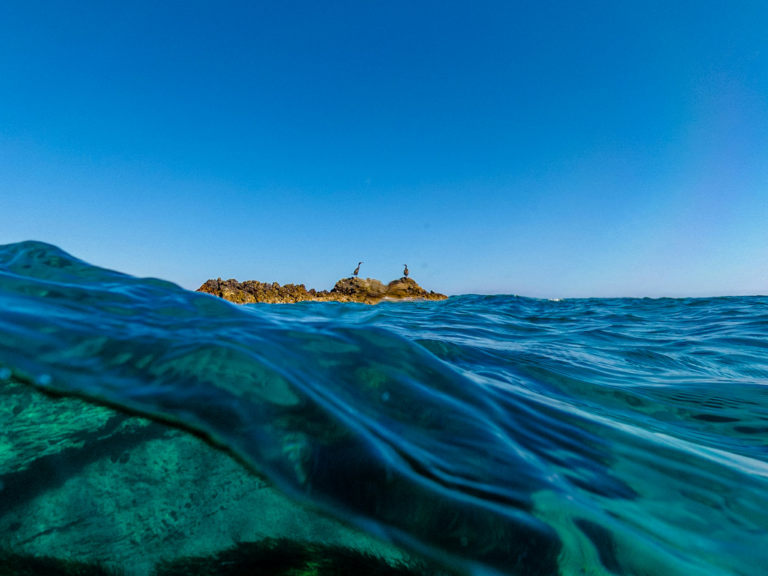
6. Consider Medication
If you know you’re prone to seasickness, consider taking over-the-counter medication. Dramamine and Bonine are popular options that can be taken before your trip to help prevent symptoms. Always consult with a healthcare professional before taking any medication, especially if you have pre-existing conditions or are taking other prescriptions. Having the right medication on hand can make all the difference when dealing with seasickness while snorkeling.
7. Focus on Breathing Techniques
Proper breathing techniques can help manage feelings of nausea. If you start feeling queasy, try to take slow, deep breaths. Inhale deeply through your nose, hold it for a few seconds, and exhale slowly through your mouth. This technique can help calm your nervous system and may alleviate some of the symptoms associated with seasickness.
While seasickness can be a frustrating barrier to enjoying snorkeling, it doesn’t have to ruin your experience. By choosing the right boat, maintaining proper positioning, timing your trip wisely, staying hydrated, and employing natural remedies or medications, you can effectively manage and overcome seasickness. Remember, the underwater world awaits you, and with these tips in mind, you’ll be better equipped to enjoy the breathtaking beauty that lies beneath the surface. Embrace the adventure and happy snorkeling!

